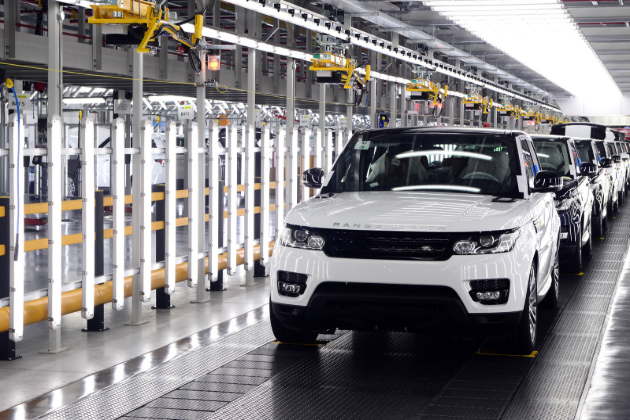Major Causes of Water Contamination Globally in 2022
Evertise
08 Jun 2022, 18:54 GMT+10

You've probably heard the phrase "70% of your body is water." That's because water is essential to life. But what's surprising is that not all water is created equal. As this article will show, the majority of our planet's water has been contaminated in some way, making it unsuited for human consumption.
Some contamination is due to natural causes like rivers flooding and spilling into the oceans or saltwater leaking into wells on coasts. Other times contamination comes from artificial sources such as industrial runoff seeping into groundwater supplies or dumping chemical waste directly into bodies of freshwater near landfills where trash gets dumped every day.
Water contamination affects us all. Humans need clean drinking sources just like animals do. Here are some of the major causes of water contamination globally.
Contamination of Water
Water contamination is a serious issue that can be caused by many different sources. Contamination of water can occur in both urban and rural areas. In urban areas, the most common causes of water contamination include human and animal waste discharge from wastewater treatment plants, oil spills from pipelines or refineries, agricultural runoff from nearby farms, industrial waste runoff from factories and manufacturing plants, etc.
In rural areas where there are no municipal water systems available (due to lack of funds), residents must rely on wells for their drinking water needs. However, wells are not always properly constructed. This results in contaminated groundwater supply with toxic chemicals released by nearby farms or factories or other sources such as pesticides sprayed onto crops without appropriate safeguards being taken into consideration beforehand.
The Camp Lejeune Water Contamination Lawsuit provides an example of one such scenario where those who served at Camp Lejeune between 1953-1987 were exposed over time to chemicals like trichloroethylene (TCE) that were present in drinking water. The water was supplied through underground pipes leading into homes throughout base housing units during this period.
Industrial Waste
Industrial wastewater can contain toxic chemicals, heavy metals, and radioactive materials that are known to cause cancer, birth defects, and other serious health problems. It may contain chemicals such as mercury, lead, and other heavy metals that occur naturally in the environment or are released into the environment by industries.
Oil Spills
Oil spills, like the Enbridge oil spill in Michigan's Kalamazoo River, are a major cause of water contamination. Oil spills can be caused by accidents or intentional dumping. For example, an accident might occur when an oil tanker runs aground or collides with another ship at sea.
In some cases, a collision may not even be necessary for disaster to strike as long as the ship is carrying enough fuel to cause significant damage. In other instances, companies intentionally dump their waste into water supplies to protect their interests and avoid paying fines for having it disposed of elsewhere.
Human and Animal Waste
Human and animal waste can contain pathogens that can cause waterborne illnesses. Human waste includes things like urine, feces, and blood, while animal waste includes anything from feces to skin cells shed by animals. These pathogens are bacteria or viruses that can cause diseases such as cholera, typhoid fever, dysentery, hepatitis A and other forms of viral hepatitis.
Human and animal wastes should not be dumped into storm drains or water systems as they will contaminate groundwater with these pathogens. Steps should be taken to prevent this type of contamination from taking place so it does not spread through drinking water sources which could lead to illness among others who consume contaminated water (including pets).
Sewage Treatment Plant Discharge
Water contamination from sewage treatment plants is a major problem in countries all around the world. Sewage treatment plants are not always as effective as they should be, and this can cause them to discharge untreated sewage into the water.
- Sewer systems should be regularly inspected by trained technicians who can identify any problems before they become an issue.
- Regular maintenance needs to be performed on these systems for them to run smoothly without breaking down unexpectedly later down the road (like when you would rather spend time relaxing at home instead).
Mining Operations
Mining operations can contaminate water. Mining is the extraction of valuable minerals or other naturally occurring materials from the earth, such as coal, oil, natural gas, and metal ores.
The process of mining involves the exploration of mineralized deposits, followed by drilling and blast excavation to extract the desired materials. However, this process also causes environmental pollution. Surface water contamination occurs when mining operations pollute surface water with toxic effluents that contain chemicals used during exploration and production phases.
Water pollution caused by mining activities is a serious problem because it affects drinking water quality for humans and wildlife. Groundwater pollution occurs when chemical compounds escape into an aquifer through cracks in bedrock or leaky waste pits.
This type of contamination poses long-term effects on ecosystems because groundwater usually contains less oxygen than surface water due to low levels of nutrients; therefore it supports fewer organisms. Furthermore, surface runoff from mines often contains dust which carries heavy metals into rivers and streams, causing further damage.
Bottomline
The most important thing you can do to protect your water supply is to be aware of the threats it faces. Then, you can make informed decisions about where your drinking water comes from, how clean it should be, and what steps need to be taken to ensure its quality. Having said that, we hope that this article has helped you become more aware of these issues and maybe even take some steps towards solving them yourself.
 Share
Share
 Tweet
Tweet
 Share
Share
 Flip
Flip
 Email
Email
Watch latest videos
Subscribe and Follow
Get a daily dose of Charlotte Star news through our daily email, its complimentary and keeps you fully up to date with world and business news as well.
News RELEASES
Publish news of your business, community or sports group, personnel appointments, major event and more by submitting a news release to Charlotte Star.
More InformationBusiness
SectionSpotify paid a record $10 billion in music royalties in 2024
STOCKHOLM, Sweden: Spotify set a new milestone in 2024, paying out US$10 billion in royalties—the highest annual payout to the music...
Jaguar Land Rover opts out of EV production at Tata’s India plant
NEW DELHI, India: Jaguar Land Rover (JLR) has decided against manufacturing electric vehicles at Tata Motors' upcoming $1 billion factory...
Virgin Group aims to raise $900M for cross-channel rail venture
LONDON, U.K.: Virgin Group is seeking to raise $900 million to fund its plan to launch cross-channel rail services, positioning itself...
Boeing's February deliveries surge to 44, up from 27 last year
SEATTLE, Washington: Boeing saw a significant increase in aircraft deliveries in February, reporting 44 planes delivered compared to...
Southwest ends free checked bags, introduces new fees
DALLAS, Texas: Southwest Airlines will start charging passengers for checked bags, ending a long-standing policy that set it apart...
U.S. stocks rally hard despite drop in consumer sentiment
NEW YORK, New York - U.S. stocks rallied hard on Friday, boosted by strong rises around the world. Investors shrugged off a decline...
Business
SectionSpotify paid a record $10 billion in music royalties in 2024
STOCKHOLM, Sweden: Spotify set a new milestone in 2024, paying out US$10 billion in royalties—the highest annual payout to the music...
Jaguar Land Rover opts out of EV production at Tata’s India plant
NEW DELHI, India: Jaguar Land Rover (JLR) has decided against manufacturing electric vehicles at Tata Motors' upcoming $1 billion factory...
Virgin Group aims to raise $900M for cross-channel rail venture
LONDON, U.K.: Virgin Group is seeking to raise $900 million to fund its plan to launch cross-channel rail services, positioning itself...
Boeing's February deliveries surge to 44, up from 27 last year
SEATTLE, Washington: Boeing saw a significant increase in aircraft deliveries in February, reporting 44 planes delivered compared to...
Southwest ends free checked bags, introduces new fees
DALLAS, Texas: Southwest Airlines will start charging passengers for checked bags, ending a long-standing policy that set it apart...
U.S. stocks rally hard despite drop in consumer sentiment
NEW YORK, New York - U.S. stocks rallied hard on Friday, boosted by strong rises around the world. Investors shrugged off a decline...







